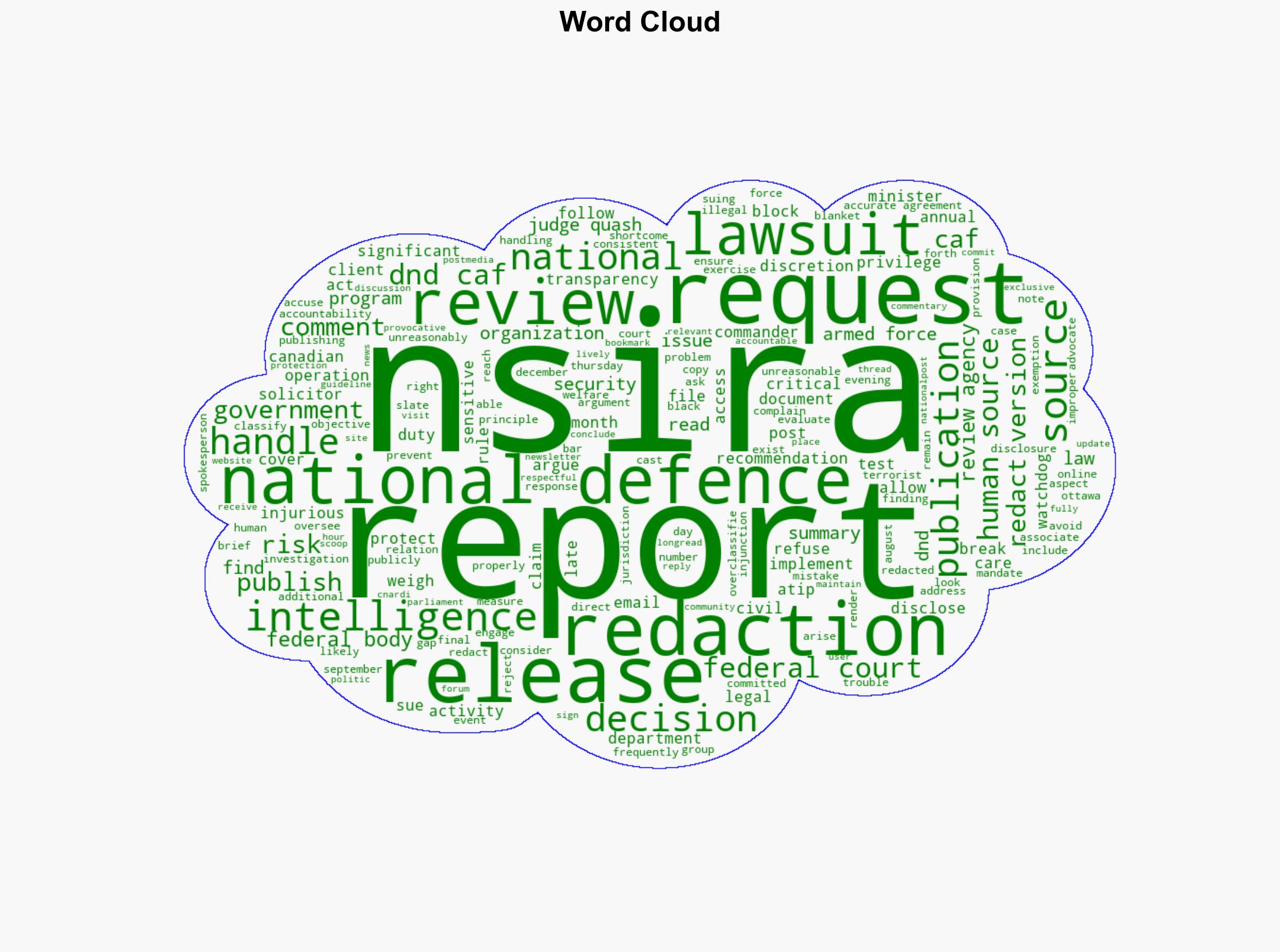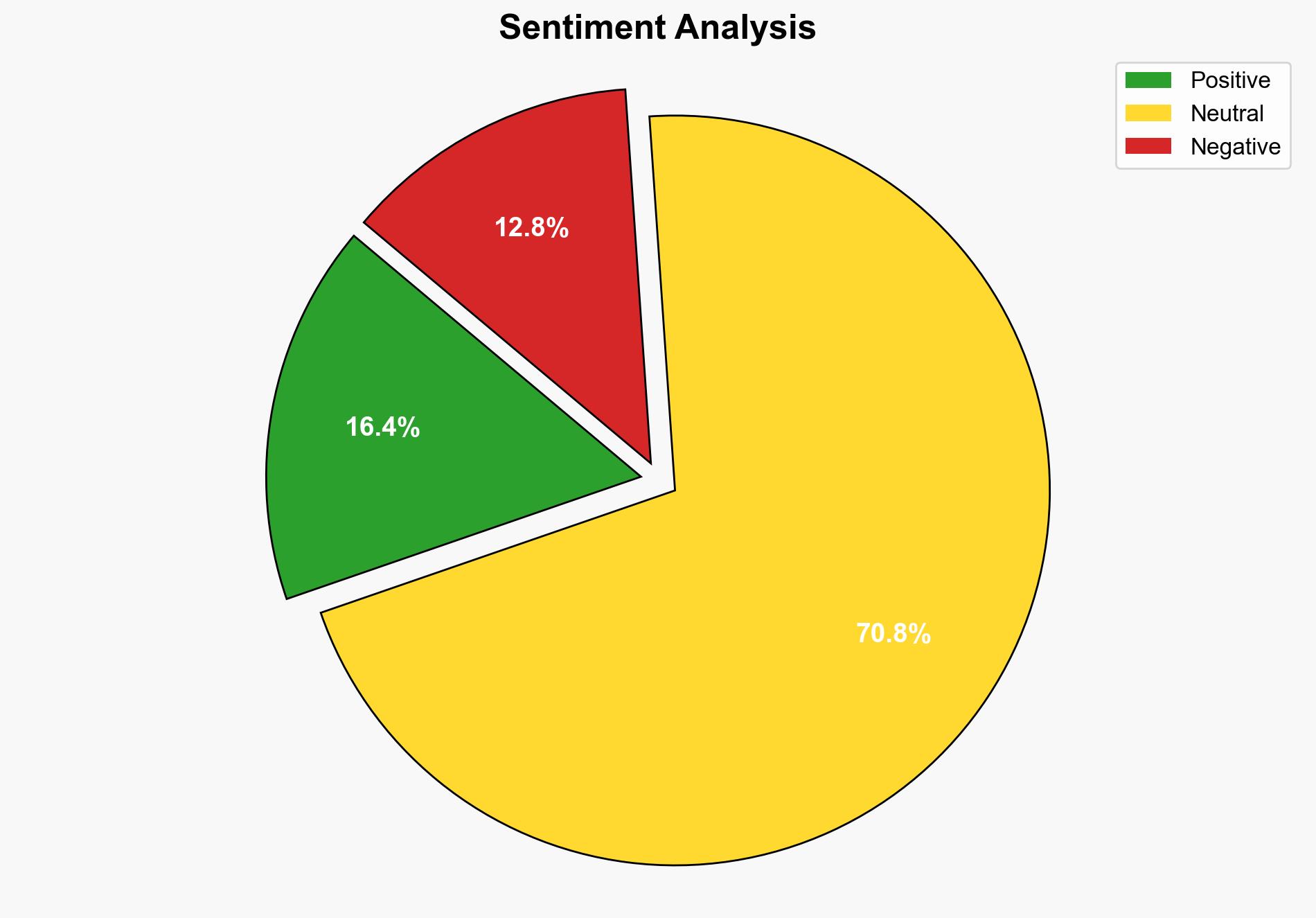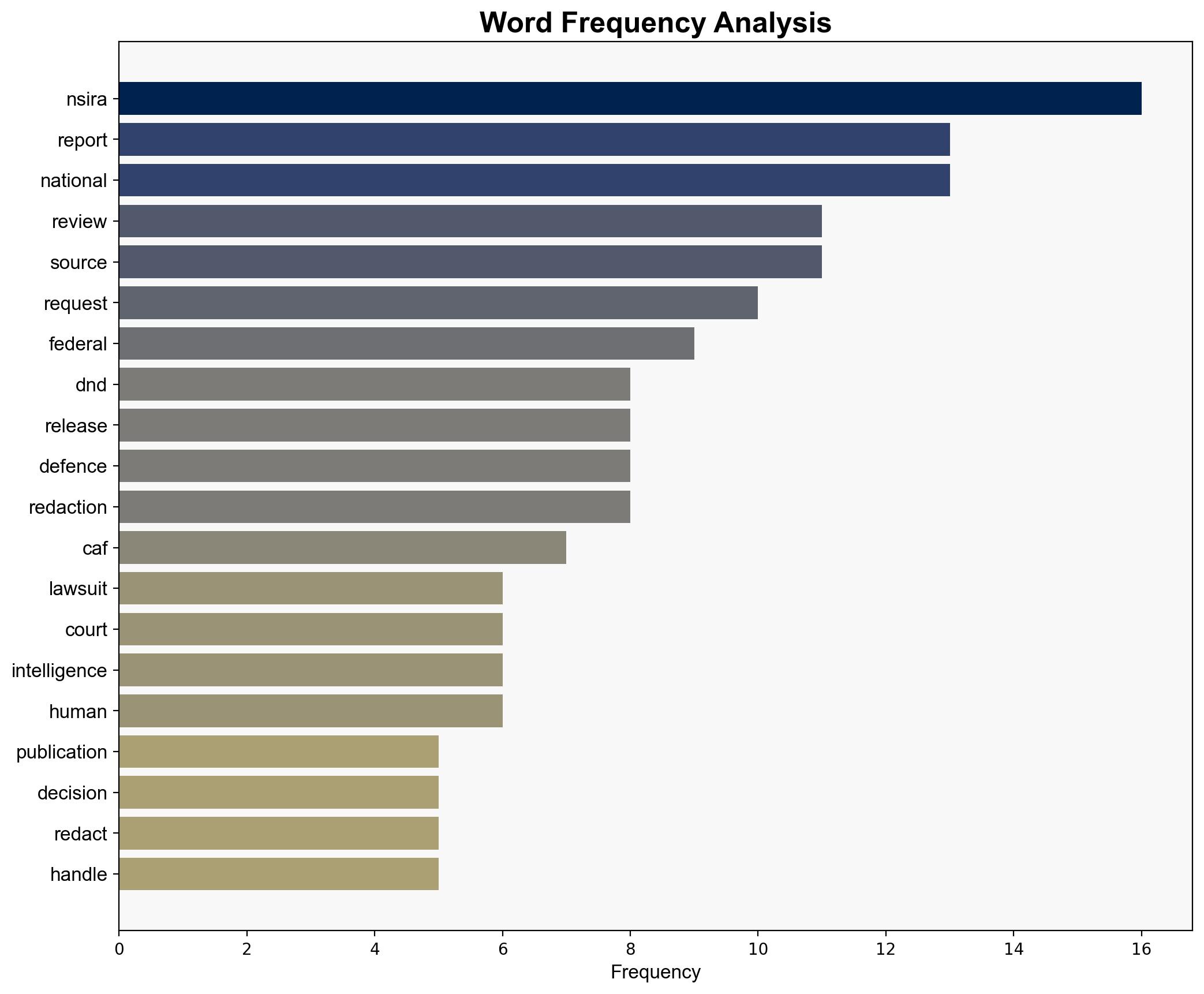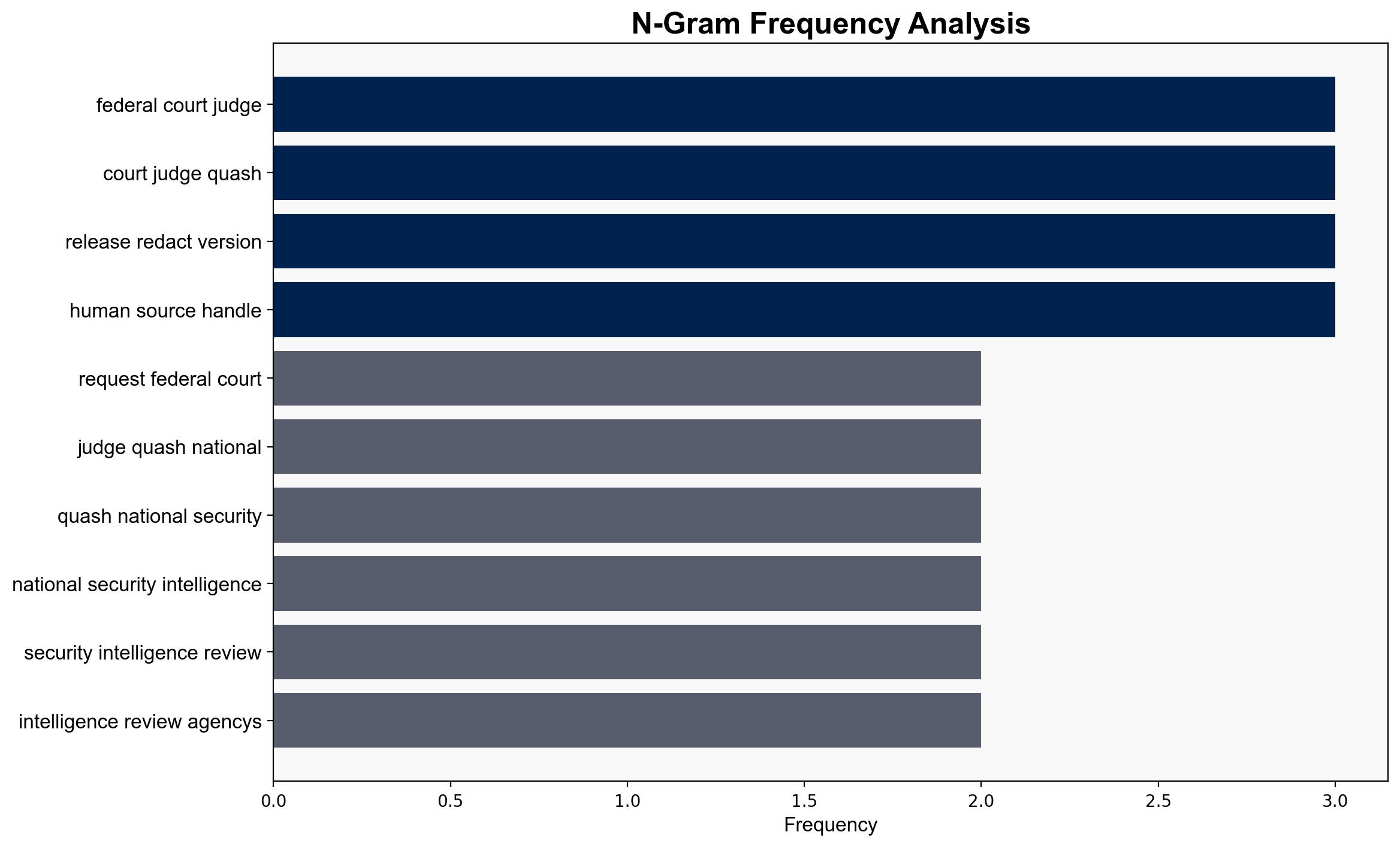Armed Forces DND suing watchdog to block publication of critical report – National Post
Published on: 2025-10-17
Intelligence Report: Armed Forces DND suing watchdog to block publication of critical report – National Post
1. BLUF (Bottom Line Up Front)
The Department of National Defence (DND) and Canadian Armed Forces (CAF) are engaged in a legal battle to prevent the release of a critical report by the National Security and Intelligence Review Agency (NSIRA). The most supported hypothesis suggests that the DND and CAF are primarily concerned with protecting sensitive operational details and legal privileges. Confidence level: Moderate. Recommended action: Monitor legal proceedings and prepare for potential public relations challenges.
2. Competing Hypotheses
1. **Hypothesis A**: The DND and CAF are suing to protect national security interests and sensitive intelligence operations, fearing that the report’s release could compromise ongoing or future operations.
2. **Hypothesis B**: The lawsuit is primarily an effort to avoid public scrutiny and accountability for potentially unlawful or unethical practices in handling human intelligence sources.
Using the Analysis of Competing Hypotheses (ACH) 2.0, Hypothesis A is better supported by the emphasis on national defense and solicitor-client privilege in the lawsuit, suggesting a focus on protecting sensitive information. Hypothesis B is plausible but less supported due to the lack of direct evidence indicating a cover-up.
3. Key Assumptions and Red Flags
– **Assumptions**: The DND and CAF’s actions are driven by genuine national security concerns. NSIRA’s commitment to transparency does not compromise security.
– **Red Flags**: The lawsuit’s timing and the extent of requested redactions may indicate an attempt to suppress damaging information. Lack of clarity on specific risks posed by the report’s release.
– **Blind Spots**: Potential internal disagreements within the DND or CAF about the lawsuit’s necessity or strategy.
4. Implications and Strategic Risks
– **National Security**: If the report contains sensitive information, its release could expose intelligence methods or sources, impacting operational security.
– **Public Trust**: Legal actions to block transparency may erode public trust in the DND and CAF, leading to increased scrutiny and demands for accountability.
– **Legal Precedent**: The outcome of this case could set a precedent for future disputes over intelligence transparency and national security.
5. Recommendations and Outlook
- **Mitigation**: Engage in proactive communication strategies to manage public perception and clarify the rationale behind the lawsuit.
- **Opportunity**: Use the legal process to refine protocols for handling sensitive information and improve transparency measures.
- **Scenario Projections**:
– **Best Case**: The court upholds the redactions, balancing transparency with security, and the DND/CAF enhance public trust through clear communication.
– **Worst Case**: The report is released unredacted, compromising security and damaging the DND/CAF’s reputation.
– **Most Likely**: A compromise is reached, allowing partial redactions with minimal impact on security and public relations.
6. Key Individuals and Entities
– Department of National Defence (DND)
– Canadian Armed Forces (CAF)
– National Security and Intelligence Review Agency (NSIRA)
7. Thematic Tags
national security threats, intelligence transparency, legal proceedings, public accountability




